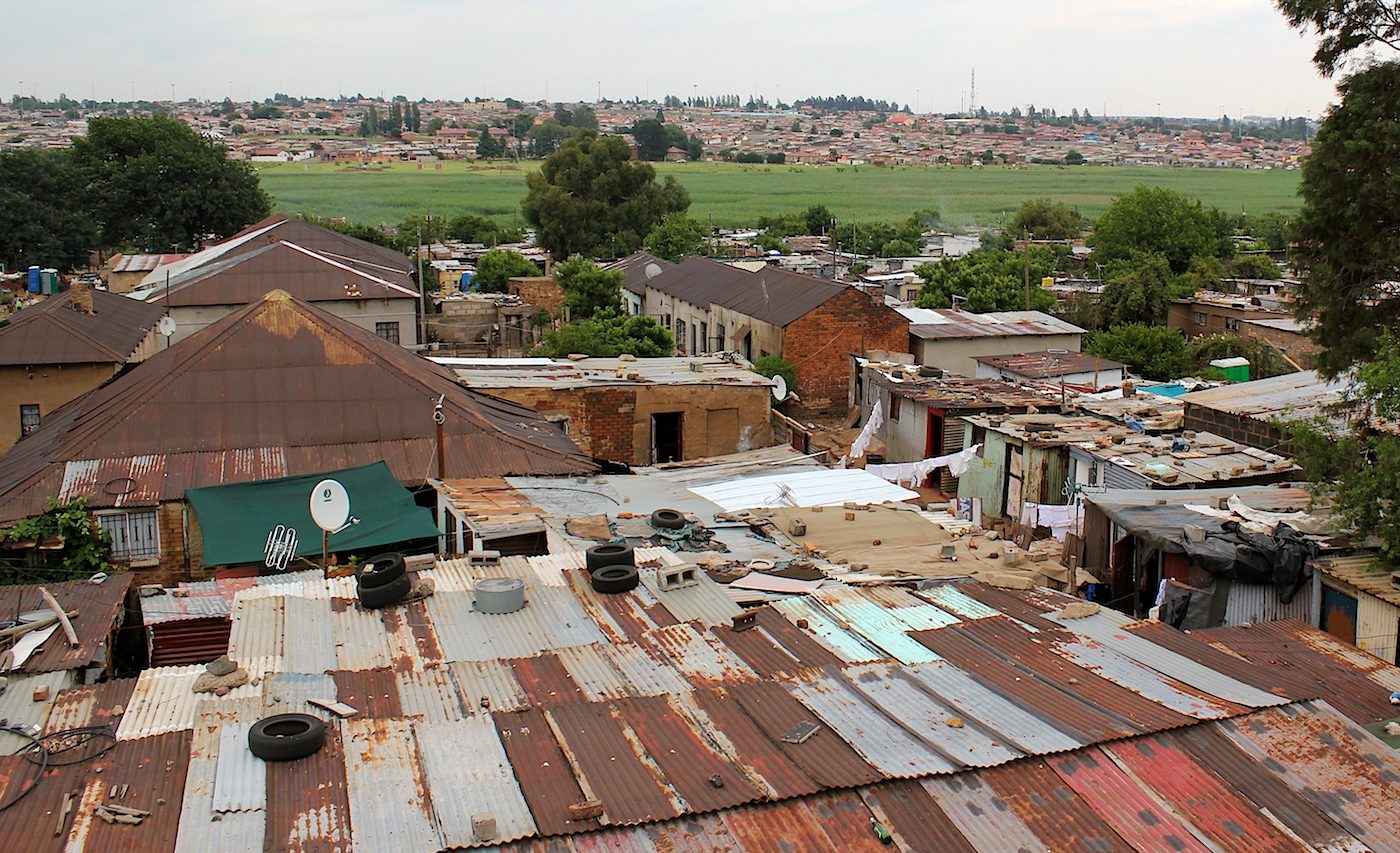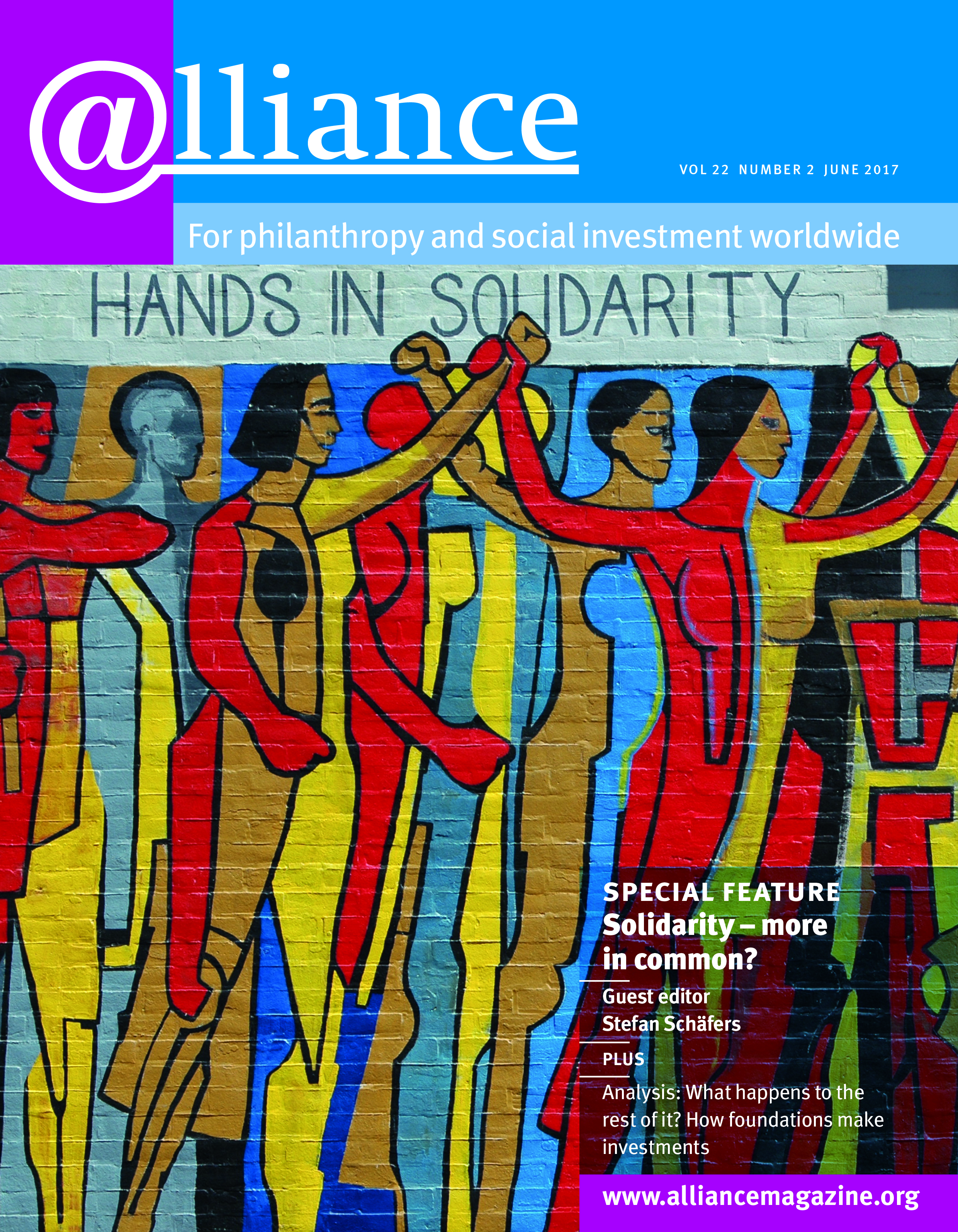Academics with an interest in the African philanthropy landscape will gather at the International Society for Third Sector Research (ISTR) conference in Accra, Ghana from 21–24 June. It is a gathering that is overdue. One of the big questions on the agenda will be how to disaggregate the roles of philanthropy and civil society in the continent’s development.
Africa is growing in terms of the size of its population, its demographic transitions and its wealth, but the continent is also becoming increasingly unequal. What is more disturbing is that the growth that is celebrated is, for the most part, the cause of that inequality.
Civil society groups and community giving both explain much of Africa’s development but, contrary to the view that philanthropy and civil society are part of one undifferentiated idea, the drivers and logics of these gilded concepts are more complex.

Kliptown, Soweto, Johannesburg. Africa is growing in terms of the size of its population, its demographic transitions and its wealth, but the continent is also becoming increasingly unequal. Photo credit: Nagarjun Kandukuru.
Two decades ago, the ‘discovery’ of civil society was heralded as the key to a renascent Africa and was expected to reconstitute the state and to contribute to development and democratization.
This expectation was based on a hypothesis that civil society could provide the missing key, at both theoretical and policy levels, to sustained political reform, could validate states and governments, and viable state-society and state-economy relationships, and prevent the kind of political decay that had undermined African development in the past.
While giving and philanthropy have been practised on the African continent from antiquity, not only does the topic remain underexplored, but also understanding its complex dynamics presents a challenge.
African philanthropy lags behind its global counterparts in terms of knowledge, data, infrastructure, human resources and research.
With Africa suffering great disparities of wealth, issues of growth and poverty remain critical to development. Unravelling the complex dynamics of giving, as well as the nexuses between civil society and philanthropy, should be on the priority list of governments and organizations. Despite this need, while many stakeholders are brought increasingly into international development processes, philanthropy stands apart, despite the scale, ambition and potential of philanthropy’s contributions to international development.
The conjoining of civil society and philanthropy automatically invokes an eclectic mix of research questions. For example: how can civil society organizations promote a culture of giving? Does charitable giving boost or enervate the civic impulse? How and under what conditions do agents traverse the civic and philanthropic terrains, and what forms of collaborations are possible between the two?
What are the proper limits of collaboration between the state and charities, and who gets to draw them? Last but not least, how have the histories of civil society and philanthropic organizations been entangled in Africa, and what are the possibilities for the transformation of the non-governmental space on the continent?
These questions will form both the background and foreground to the 2017 ISTR Africa regional network conference. Papers and keynote addresses will be given by authorities on civil society and philanthropy. They will explore how both concepts shape and are shaped by institutions and individuals locally, internationally and globally.
This spatial dimension is important, as are papers that challenge the consensus around the ‘goodness’ of charity, or take us to the so-called dark side of philanthropy, with critical detours at the intersection of international aid and donor dependence.
This conference will delve into the context, contradictions and possibilities of civil society and philanthropy in Africa. No single analytical or disciplinary field can offer all the insights on these matters, of course.
Mainstream sociology and anthropology are now lonely queens, but they have to be engaged – without being embraced – if the social sciences can reach the corridors of power to rebuke and rebuild.
Gideon Boako is research associate at the Chair in African Philanthropy, Wits Business School, Johannesburg. Email: gboako@gmail.com






Comments (0)